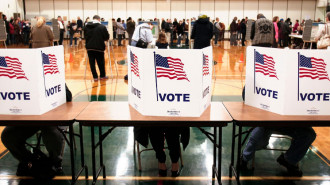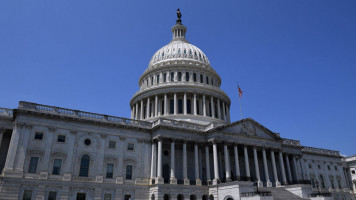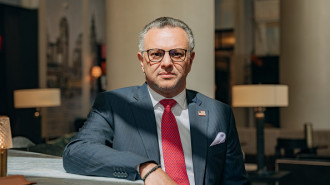Lebanon Pride proceeds despite Islamists declaring 'war on homosexuality'
Organisers of Lebanon's first gay pride festival have vowed to proceed with the celebration, despite religious figures forcing the closure of the first of this week's pro-LGBT events.
Proud Lebanon Director Bertho Makso said that Beirut Pride - which kicked off on Sunday with an exhibition on gender fluidity in fashion - will go ahead in spite of the Association of Muslim Scholars in Lebanon declaring "war on homosexuality".
On Monday, organisers had to cancel a seminar on discrimination against the LGBT community for "security reasons" after the Islamists threatened to hold demonstrations outside the event.
"The other events will go on," Makso told The New Arab on Wednesday, adding that the cancelled seminar may have been targeted because it was "more public".
The ultra-conservative Salafist group posted what it called "the last warning" on its Facebook page on Sunday, and demanded police ban the conference which it labelled a "crime against virtue".
"We declare war against this evil obscenity… if the authorities do not live up to their role, they will have to face the consequences," the group said.
It warned that it would "mobilise of all those who care about virtue and honour... to forbid this seminar".
Instead of focusing on a rowdy street parade as seen in other more liberal countries, Beirut Pride will include film screenings, lectures and a party at one of the Middle East's biggest nightclubs.
Lebanon remains generally more tolerant towards LGBT issues than other Arab countries, although police still stage regular raids on gay nightclubs.
Lebanese law does prohibit sexual acts that are "contrary to the order of nature", which some interpret as serving as a "ban" on homosexuality, although LBGT campaigners argue this is not the case.
"Lebanese law does not forbid homosexuality. What 'unnatural' sexual behaviour means is debatable and judges have ruled this law does not cover the LGBT community," the activist argued.
Responding to the threats from Islamists, Masko said Lebanon was a country ruled by law.
A 2007 poll showed that only 18 percent of Lebanese people believed "homosexuality should be accepted by society", but pro-LGBT activism has grown across the country in recent years.
Last week, an advertisement by a Lebanese fast-food chain featured a same-sex couple and saw a flurry of positive comments on social media.

![Palestinians mourned the victims of an Israeli strike on Deir al-Balah [Getty]](/sites/default/files/styles/image_684x385/public/2024-11/GettyImages-2182362043.jpg?h=199d8c1f&itok=xSHZFbmc)


![The law could be enforced against teachers without prior notice [Getty]](/sites/default/files/styles/image_684x385/public/2178740715.jpeg?h=a5f2f23a&itok=hnqrCS4x)
 Follow the Middle East's top stories in English at The New Arab on Google News
Follow the Middle East's top stories in English at The New Arab on Google News


